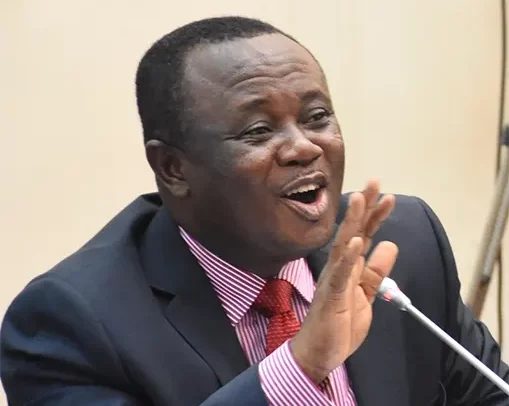Joseph Osei Owusu
The External Branches of the opposition New Patriotic Party (NPP) have petitioned the National Executive Committee (NEC) to overturn a directive by the Presidential Elections Committee (PEC) banning proxy voting in the party’s upcoming presidential primary scheduled for January 31, 2026.
In a petition dated November 10, 2025 and signed by chairpersons of all 30 recognised external branches, the group described the directive as unconstitutional, discriminatory, and a direct attempt to disenfranchise legitimate delegates who live and work outside Ghana.
The petition, submitted through the party’s General Secretary, argued that the PEC overstepped its mandate by unilaterally announcing that “there shall be no proxy voting” for the presidential primary.
The petitioners are Atta Adu-Osae (Australia), George Fobi (Austria), Solomon Agyin (Belgium), Victoria Owusu Ansah (Canada), Ben Owusu Achiaw (China), Catherine Senkyere (Cote d’Ivoire), Samuel Antwi Darkwah (Czech Republic), Kennedy Agyei (Denmark), Maxwell Boateng (Equatorial Guinea), and James McKeown (Finland).
The rest are Frederick A. Addo (France), Dr. Felix Yamoah (Germany), Dr. Paa Kwesi Wolseley (Hong Kong), Alf Marshall Agyapong (Ireland), Rexford Osei Mensah (Italy), Alhaji Abdul Razak (Japan), Isaac Osae (Middle East), Joseph Antwi Baffour-Awuah (Nigeria), Isaac Agyemang (Norway), and Addofoh Dwamena-Oboankoma (Qatar).
Others are Ajene Abongo Mashood (Russia), Joe Armstrong Qauicou (Senegal), Jones Yaw Marfo Frimpong (South Africa), Richard Zinleri (South Korea), Michael Sanko (Spain), Richard Oti-Aboagye (Sweden), Elvis Agyei (Netherlands), George Nana Gyedu (Togo), Kingsley Adumattah Agyapong (UK), and Yaa Amponsah Frimpong (USA).
According to the petitioners, Article 13(2.6) of the NPP Constitution clearly vests the authority to set rules for presidential elections in the National Executive Committee, acting in consultation with the National Council, and not in an ad hoc committee acting alone.
The External Branches questioned whether the PEC consulted the National Council before making the announcement, “Any rule emanating solely from the PEC without satisfying constitutional requirements is ultra vires and void.”
The petitioners emphasised that the ban would effectively exclude all external-branch delegates from the presidential primary, contrary to Article 8 of the party’s constitution, which recognises the branches and grants them full participatory rights in internal elections.
They noted that because the branches operate outside Ghana, physical participation is practically impossible, making proxy voting the only feasible mechanism for inclusion.
They argued that the NPP has successfully implemented proxy voting in previous presidential primaries and national executive elections, questioning why the party suddenly considers the system unmanageable.
The petitioners criticised the new directive as “a convenient or lazy approach” and said it reflected poorly on the party’s administrative competence.
“If the national electoral body can design and safeguard proxy voting for millions of voters, it is difficult to understand why the NPP, known for its organisational strength and the proud claim that we ‘have the men’, cannot manage the same within our much smaller internal structure,” the chairpersons wrote.
The petition further argued that a blanket ban on proxy voting undermines fairness, natural justice and long-standing party practice.
It warned that disenfranchising external delegates would be a serious breach of the party’s democratic commitments and could erode trust among members abroad who make significant contributions to the party’s operations.
The External Branches requested that the NEC declares the PEC’s directive null and void for violating the party’s constitution; and that proxy voting be reinstated, or an alternative mechanism adopted to enable external delegates to participate meaningfully in the 2026 presidential primary.
By Ernest Kofi Adu


